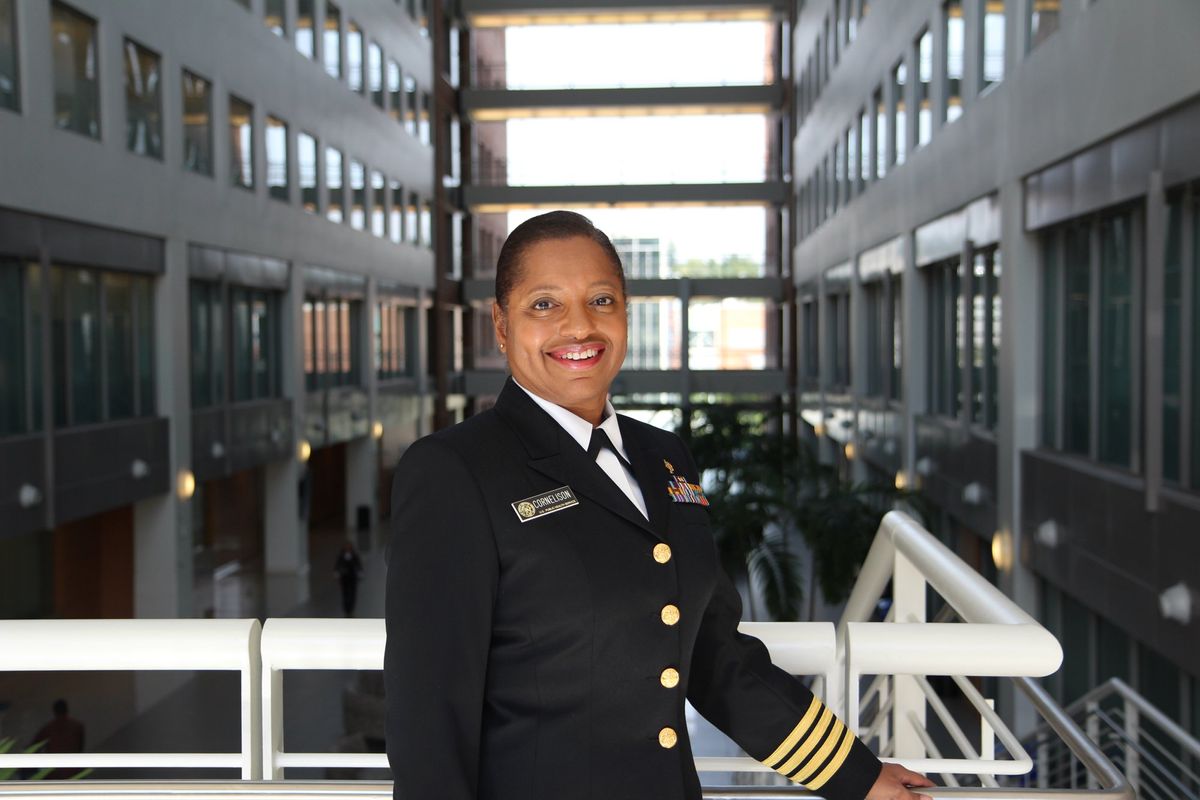HealthyWomen’s annual event is taking place in Washington, D.C., on March 30, 2023.
It’s that time of year again! The HealthyWomen annual event is bringing together experts and trendsetters who make a difference in women’s health. This year’s event — The Art of Living Well — will highlight creativity in healthcare, innovation and research with headlining speakers, videos, a panel discussion and a silent art auction. The event is a fundraiser to support HealthyWomen’s mission of educating midlife women on important health topics.
One of the lauded speakers will be Terri Cornelison, M.D., Ph.D., a gynecologic oncologist and the chief medical officer and director of the Health of Women Program at the FDA Center for Devices and Radiological Health (CDRH). At CDRH, Cornelison serves as lead spokesperson and principal liaison, senior advisor to CDRH and FDA leadership on medical device women’s health issues, including sex-specific evaluation in clinical studies and sex/gender specific questions in medical device-related research.
Cornelison has been interested in women’s health from a young age. In fact, she made her decision to work as an OB-GYN physician when she was in the eighth grade.
“I needed to decide what type of doctor I’d become because, you know, it was time to make that decision,” Cornelison joked. Her interest was piqued when she asked her mom, a nurse, to explain obstetrics and gynecology. “My mother described the specialty as consisting of many aspects of healthcare — not just delivering babies but taking care of women throughout their adult lives.”
The description appealed to Cornelison as a young teen and, eventually, working to make a difference in the health of women would become her life’s journey.
After training as an obstetrician and gynecologist, Cornelison chose to subspecialize in gynecological oncology because of her love of gynecology and surgery and her curiosity about cancer, and became a surgeon. She knew she was up for the challenge. “I’m a proponent of women having choices — so I chose gynecology and surgery and became a gynecologic oncologist,” she said.
Before joining CDRH, Cornelison worked at the National Institutes of Health (NIH), first as a program director for breast and gynecologic cancers, and then as the first associate clinical director in the Office of Research of Women’s Health. It was in this position that she learned about sex- and gender-based research.
“As scientists and the medical community continue to learn more about sex and gender differences, we are learning that both sex — an individual’s biological characteristics — and gender — the social construct by which one may define oneself — may play significant roles in the course and outcome of conditions that affect all human organ systems,” Cornelison said. “While sex and gender are interrelated, they are not necessarily mutually exclusive, and their interactions may affect physiological reactions, presentation of disease and treatment outcomes.”
As a gynecologist, Cornelison said she was astonished that she hadn’t heard about sex and gender affecting human organ systems beyond reproductive structures. But while it wasn’t in gynecological literature, it was in literature for other specialties such as cardiology and neurology, where work had already been done showing how these distinctions come into play in the practice of medicine.
“We in gynecology had always learned to tailor our care to how the patient is responding, how she’s presenting,” Cornelison said. “But what we didn’t understand is that part of what’s behind all of that is the fact that every cell is sexed and every person is gendered, with gender encompassing an entire continuum.”
While Cornelison was learning about this at NIH, the CDRH was recognizing the importance of sex-specific issues with regard to medical device development and wanted to have a full-time effort in this space. That’s when Cornelison began working for the CDRH to build and lead the program.
Cornelison piloted the efforts for the CDRH Health of Women Program, which addresses the importance of sex- and gender-specific issues arising from medical technology design and development, clinical trial design, and other medical device-related matters. The program works in partnership across all of CDRH in the Center’s continued commitment to provide women with timely access to high quality, safe and effective medical devices.
“As we deepen our understanding of how medical devices work for women, we continue our efforts to help assure that medical devices — those developed specifically for women and those developed for both men and women — optimally align with the considerations of usability and performance in women. In this way, we achieve the highest quality of innovation, safety and effectiveness for every patient.”
She pointed out that the program isn’t called “women’s health” but rather “health of women” because “health of women is not relegated to reproductive organs or to what was historically thought of as the only tissues in the body that are responsive to hormone levels.”
Today, Cornelison is still moving the needle forward when it comes to advancing the health of women. This is why she’s glad to be speaking at the HealthyWomen event. “I am always excited to be in the room with people who bring amazing energy and innovation to the health-of-women space, and to build those alliances that further the scientific enterprise and help us all protect and promote the health of women in this country. It really does take all of us in this — all sexes, all genders — in order to create the scientific and medical climate that works best for everyone,” Cornelison said.
Read about The Art of Living Well’s other headlining speaker, Jeremy Nobel, M.D., M.P.H., faculty at Harvard Medical School and Harvard T.H. Chan School of Public Health, and founder and president ofThe Foundation of Art & Healing.

